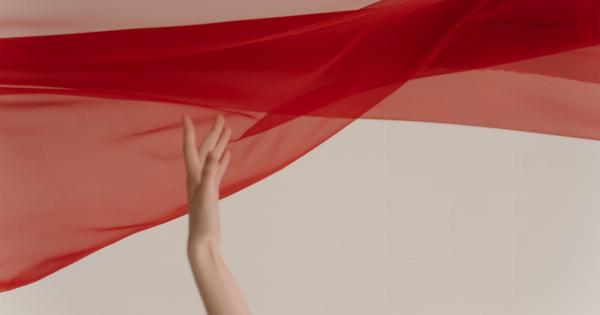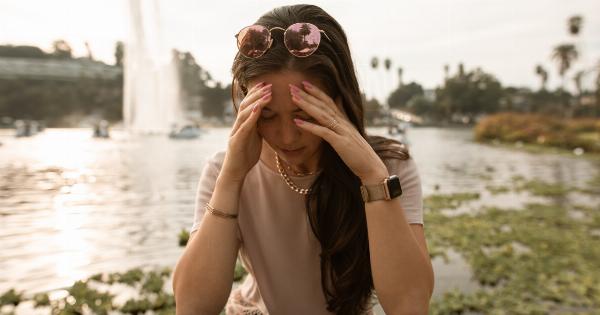If you’re someone who suffers from frequent headaches, you know how painful and disruptive they can be. And while we often associate headaches with stress or a migraine, there are actually many surprising causes of this common affliction.
In this article, we’re going to explore 30 of the most unexpected reasons why you might be experiencing headaches – and we’re going to do it with pictures!.
1. Your Diet
Believe it or not, the foods you eat can have a big impact on whether or not you experience headaches. Some of the most common headache triggers include:.
- Processed meat
- Cheese
- Chocolate
- Alcohol
- Caffeine
- MSG
2. Medications
If you’re taking certain medications, they could be the cause of your headaches. Some of the most common culprits include:.
- Antidepressants
- Blood pressure medication
- Birth control pills
- Over-the-counter pain relievers (taken too often or in large doses)
3. Dehydration
When you’re dehydrated, your body can experience a host of symptoms, including headaches. Make sure you’re drinking enough water throughout the day to avoid this issue.
4. Eye Strain
If you spend a lot of time staring at a computer screen or phone, your eyes may become strained – and that can cause a headache. Try taking regular breaks to rest your eyes and reduce the strain.
5. Jaw Problems
Issues with your jaw, such as temporomandibular joint disorder (TMJ), can lead to headaches as well. If you’re experiencing jaw pain, talk to your dentist about potential treatments.
6. Sinus Problems
When your sinuses become inflamed, it can lead to painful sinus headaches. If you’re experiencing congestion or other symptoms of sinusitis, talk to your doctor about potential treatments.
7. Hormonal Changes
For many women, hormonal changes throughout the menstrual cycle can lead to headaches. If you’re experiencing severe menstrual migraines, talk to your doctor about potential treatment options.
8. Weather Changes
Barometric pressure changes and other weather-related shifts can trigger headaches in some people. If you’re sensitive to these changes, be proactive about taking steps to prevent headaches when a storm is coming.
9. Noise
Exposure to loud noises can cause headaches, especially in people who are sensitive to sound. If you’re experiencing headaches after exposure to noise, consider investing in earplugs or other noise-reducing products.
10. Lack of Sleep
Lack of sleep can lead to a host of health issues – including headaches. Make sure you’re getting enough rest each night to avoid this problem.
11. Bright Lights
Sensitivity to bright lights is a common cause of headaches, especially in people who suffer from migraines. Try to avoid exposure to bright lights whenever possible.
12. Odors
Some people are sensitive to certain smells – and those smells can cause headaches. If you’re experiencing headaches after exposure to a particular odor, try to avoid that smell whenever possible.
13. Allergies
Allergies can cause a host of symptoms, including headaches. If you’re experiencing symptoms like congestion, sneezing, and itching along with your headaches, talk to your doctor about possible allergy treatments.
14. Anxiety and Stress
Anxiety and stress can lead to tension headaches – the most common type of headache. If you’re experiencing headaches in conjunction with anxiety or stress, consider seeking counseling or other forms of treatment.
15. Exercise
While exercise is great for your overall health, certain types of physical activity – like weightlifting – can cause headaches in some people.
If you’re experiencing headaches after working out, try adjusting your routine to see if that helps.
16. Smoking
Cigarette smoke can cause headaches in some people, even if they’re not smokers themselves. If you’re experiencing headaches after exposure to cigarette smoke, try to avoid smoky environments whenever possible.
17. Caffeine Withdrawal
If you’re used to getting a lot of caffeine each day – through coffee, tea, soda, or other sources – suddenly cutting back can lead to caffeine withdrawal headaches. Try reducing your caffeine intake gradually to avoid this issue.
18. Glare
Similar to bright lights, glare can cause headaches in some people. If you’re experiencing headaches after exposure to glare, try to adjust the lighting in your environment.
19. Posture
Poor posture can lead to tension headaches, especially if you spend a lot of time sitting at a desk or using a computer. Make sure you’re sitting up straight and taking regular breaks to stretch to avoid this issue.
20. Sleeping Positions
The position you sleep in can impact your likelihood of experiencing headaches. Sleeping on your stomach or with your neck at an awkward angle can both contribute to this problem.
21. Medication Overuse
Overusing pain medications – including over-the-counter options like ibuprofen or acetaminophen – can actually lead to rebound headaches.
If you’re experiencing frequent headaches, talk to your doctor about potential treatment options.
22. Low Blood Sugar
When your blood sugar gets too low, it can lead to headaches (among other symptoms). Make sure you’re eating regular meals throughout the day to avoid this issue.
23. High Blood Pressure
High blood pressure can lead to a variety of health issues, including headaches. If you’re experiencing headaches along with other symptoms of high blood pressure, talk to your doctor about potential treatment options.
24. Brain Tumor
While rare, a brain tumor can cause headaches. If you’re experiencing other symptoms like seizures, weakness, or numbness in addition to your headaches, talk to your doctor right away.
25. Carbon Monoxide Poisoning
Carbon monoxide is an odorless gas that can be deadly – and it can also cause headaches. If you’re experiencing headaches along with other symptoms like nausea or dizziness, get to fresh air and seek medical attention immediately.
26. Nerve Damage
Nerve damage in the head or neck can lead to chronic headaches. Talk to your doctor about potential treatments if you’re experiencing this issue.
27. Hangovers
Drinking too much alcohol can lead to a painful hangover – and that often includes a headache. Make sure you drink in moderation to avoid this issue.
28. PMS
As we mentioned above, hormonal changes during the menstrual cycle can lead to headaches. If you’re experiencing headaches along with PMS symptoms, consider talking to your doctor about potential treatment options.
29. Sleep Apnea
Sleep apnea is a condition in which a person stops breathing for short periods of time during sleep. It can lead to headaches (among other health issues). Talk to your doctor if you suspect you may have sleep apnea.
30. Trauma
Finally, trauma to the head or neck can lead to headaches. If you’ve experienced an injury and are now experiencing headaches, talk to your doctor about potential treatment options.
The Bottom Line
As you can see, there are many different possible causes of headaches – and some of them may be surprising! If you’re experiencing frequent headaches, talk to your doctor or a headache specialist to explore potential treatment options.
























